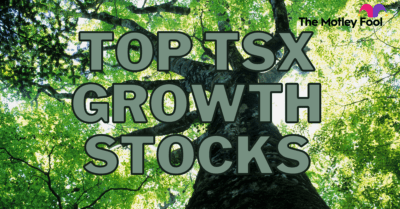There’s not a lot of places to hide when the market is bleeding red. When investors panic about some macroeconomic issue, such as the ongoing coronavirus pandemic, they sell stocks indiscriminately. This means companies that have nothing to do with the economy, such as healthcare providers, will have their market value slashed along with the rest.
In an effort to protect their wealth, many investors turn to gold. Gold’s reputation as a safe-haven asset during times of crisis has held up well during this market correction. The price of a single ounce of gold is up 3.4% over the past 10 days, while the S&P/TSX Composite Index declined 3.8% over that same period.
In other words, gold exchange-traded funds (ETFs) could serve as a hedge against market declines and help you protect your wealth during this ongoing correction. However, what if you were trying to make money by betting against the market? Turns out there’s a simple tool that could help you walk away with handsome profits while most investors lose money.
The inverse ETF
Horizons BetaPro S&P/TSX 60 Inverse ETF (TSX:HIX) is a special type of ETF. Instead of holding stocks, this fund holds short positions (bets against) the top 60 stocks in the country. For example, its top holdings at the moment are put options (short bets) on Royal Bank of Canada and Canadian National Railway.
This means the fund’s price performance should be nearly -1% for every 1% gain in the TSX 60 index and vice versa.
This makes it easy for average investors to bet against the market without getting involved with complicated margin trading or option strategies that institutions tend to use. On a day like yesterday, simply buying HIX would have delivered a 2.15% gain, making it one of the few profitable investment strategies on the market this week.
Investors can effectively use HIX to hedge their overall portfolios and mitigate capital losses or to make short-term speculative bets on stock market crashes. I believe savvy investors can use inverse ETFs to benefit from market crashes and panic-driven selling. While accurately predicting investor sentiment day to day is impossible, inverse ETFs like this can serve as a proxy for inevitable fear.
However, there are some downsides investors need to be aware of. These funds are not designed to be cheap. The ETF’s management expense ratio is 1.15%, far higher than your traditional ETF. Coupled with the fact that the stock market tends to go up over the long run, investors should probably avoid making HIX a permanent part of their portfolios.
Bottom line
The stock market is volatile. That shouldn’t surprise you if you’ve been investing for long enough. However, what might surprise you is that there are ETFs that help you make money when the market is crashing. These inverse ETFs are a good bet for pessimistic investors who expect a crash in 2020.
While these exotic and unconventional instruments aren’t for everyone, savvy investors can certainly use them to their advantage over the long run.










